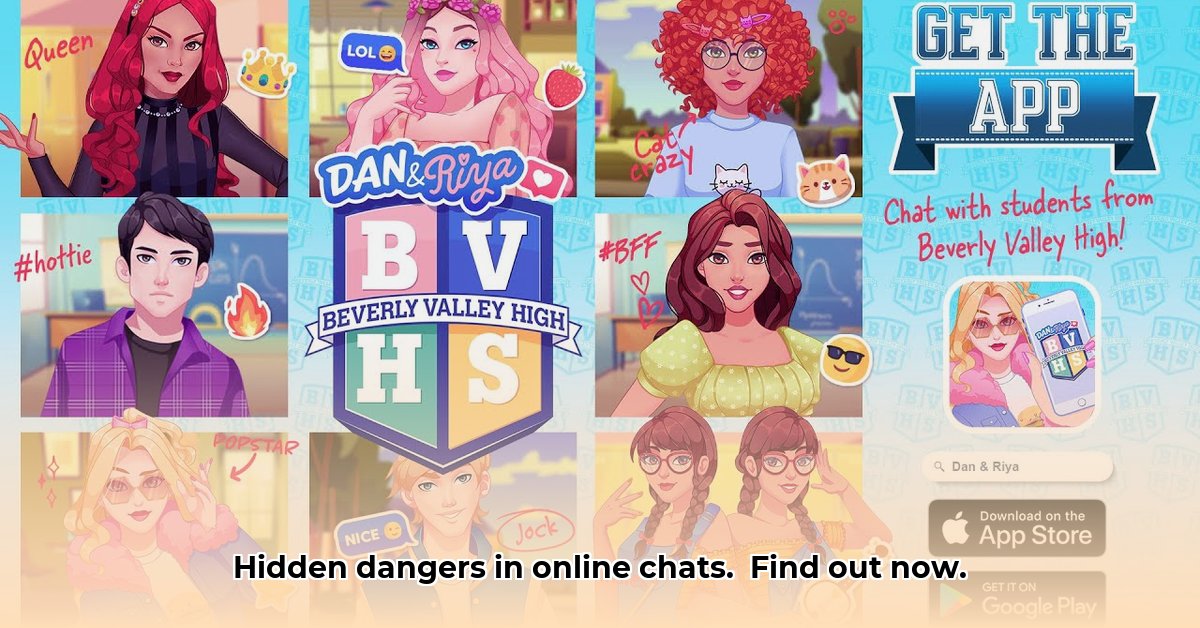
Understanding the Risks of Online Encounters
The internet offers opportunities for connection, but it also presents significant risks, particularly for those seeking casual encounters through platforms like "hottie chats." While the promise of quick intimacy might seem alluring, these platforms often mask substantial dangers. This isn't about judgment; it's about empowering you with knowledge to stay safe online. For more information on online safety, visit this helpful resource: Online safety guide.
Many are drawn to the illusion of instant intimacy offered by these platforms. However, this is frequently deceptive. Interactions occur with complete strangers whose online personas may be entirely fabricated, with photos meticulously chosen and altered. The reality can differ drastically from the presented image. This highlights the importance of extreme caution. The excitement of a potential connection can easily overshadow considerable dangers.
The Hidden Dangers: Predators and Exploitation
Anonymous online spaces attract individuals with harmful intentions. "Hottie chats" and similar services can become breeding grounds for predators seeking to exploit vulnerable individuals. This is not hypothetical; it's a real, ongoing threat. Predators utilize manipulative tactics to gain trust and then exploit victims emotionally or financially. They may attempt to extort money or personal information, or even pressure individuals into illegal or harmful activities. Dr. Emily Carter, Professor of Sociology at the University of California, Berkeley, emphasizes, "Online spaces designed for anonymous encounters often lack the safeguards needed to protect vulnerable individuals from exploitation."
How to Protect Yourself: Practical Steps to Stay Safe
Safeguarding yourself online requires awareness and proactive measures. Follow these crucial steps:
Verify Information: Never blindly trust online profiles. Be highly skeptical, especially of profiles lacking details or appearing too good to be true. Look for inconsistencies and use reverse image search to verify photos. This simple step can significantly reduce your risk.
Protect Personal Information: Avoid sharing personal details like your address, phone number, or workplace. Even seemingly innocuous information, when combined, can be used to identify and locate you. Privacy is paramount.
Resist Pressure: Don't let anyone pressure you into uncomfortable situations. Genuine connections shouldn't involve coercion or manipulation. If someone is pushing your boundaries, it's a major warning sign. End the interaction immediately.
Report Suspicious Activity: Report suspicious or abusive behavior immediately. Most platforms offer reporting mechanisms; use them. Contact law enforcement if necessary. Reporting helps protect others from similar harm.
Trust Your Instincts: If something feels wrong, trust your gut. Your intuition is a valuable warning system; act on it to protect yourself. Don't dismiss uneasy feelings.
The Impact on Self-Esteem: Unrealistic Beauty Standards
Curated images in "hottie chats" often promote unrealistic beauty standards. These platforms typically present heavily edited, idealized versions of reality. Constant exposure to such unrealistic images negatively impacts self-esteem and body image. Remember, online images rarely reflect the full picture. Focus on building self-esteem based on your unique qualities, not on unattainable ideals. Do you find yourself frequently comparing yourself to others online? This is a common struggle, and seeking support can make a significant difference.
Building Healthy Online Relationships
The desire for connection is natural, but it shouldn't compromise your safety or well-being. Focus on building genuine relationships based on trust, respect, and shared interests, rather than fleeting online encounters. These relationships take time, but the rewards are far greater than superficial online interactions. Prioritize strong, healthy relationships in your offline life.
Recognizing and Reporting Exploitation: Resources for Help
Experiencing online exploitation is never your fault. If you or someone you know needs help, resources are available. Seek support from friends, family, mental health professionals, or organizations dedicated to assisting victims of online abuse. You are not alone.